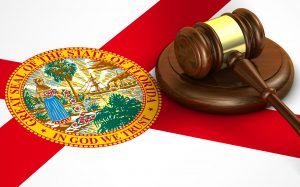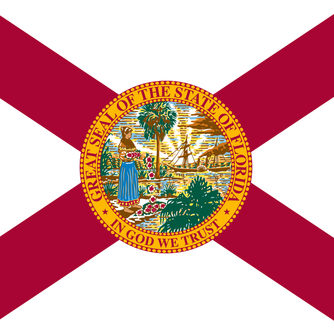 Nothing in life is free. The common saying is especially true for medical services. Most states provide hospitals with unique statutory ways of ensuring that they are reimbursed for the services they provide—especially in the case of patients without health insurance. In general, public policy dictates that this medical care is important to our overall society – so it is also important for a hospital to be able to ensure that it is reimbursed for health care services it provides. This ensures that hospitals and medical providers continue providing these services for the public. Hospital liens are also often referred to as “health care provider liens” or “medical liens.” For the sake of simplicity, we refer to them generically as “hospital liens.” Every state handles them differently; and Florida is no exception.
Nothing in life is free. The common saying is especially true for medical services. Most states provide hospitals with unique statutory ways of ensuring that they are reimbursed for the services they provide—especially in the case of patients without health insurance. In general, public policy dictates that this medical care is important to our overall society – so it is also important for a hospital to be able to ensure that it is reimbursed for health care services it provides. This ensures that hospitals and medical providers continue providing these services for the public. Hospital liens are also often referred to as “health care provider liens” or “medical liens.” For the sake of simplicity, we refer to them generically as “hospital liens.” Every state handles them differently; and Florida is no exception.
Hospitals or other health care providers are generally allowed to perfect a hospital lien against any lawsuit, claim, or recovery a patient has against a third-party tortfeasor responsible for causing an injury. A simple enough concept—hospitals expect to be paid for the services they render to a patient. In Florida, however, the legislature was not satisfied with having such a simple and straightforward concept.
The Florida legislature separates their statutory laws into two categories – General laws and Special laws. General laws relate to persons or things as a whole. Special laws relate to particular persons or things of class in specificity. State v. Love, 126 So. 374 (Fla. 1930). Initially, Florida’s hospital lien laws were created by one of these special laws (since they pertain to a specific class of thing, hospitals). However, in 2012, the Supreme Court of Florida decreed that the use of special acts to authorize medical liens was unconstitutional under Article III, Section 11. Shands Teaching Hosp. & Clinics, Inc. v. Mercury Ins. Co. of Fla., 97 So. 3d 204 (Fla. 2012). Article III, section 11(a)(9) of the Florida Constitution, states, in part:
(a) There shall be no special law or general law of local application pertaining to,
(9) creation, enforcement, extension, or impairment of liens based on private contracts, or fixing of interest rates on private contracts
In Shands, the court ruled that if a county has issued a “county ordinance” which granted the ability for a medical provider to enforce a hospital lien, this was a valid and enforceable way for a medical provider to record and enforce their hospital lien. Id. at 210—211. The Supreme Court ruled that these county ordinances did not violate any state statutes and any county which had enacted one of these county ordinances “validly exercised its broad powers of local self-government in enacting the Ordinance.” Id. at 211. The county ordinance was deemed enforceable in the Shands case even though the Alachua County Ordinance at issue in that case had language nearly identical to the unenforceable “special law” Id. at 209—211.
The Shands decision resulted in a medical provider’s ability to file a hospital lien being determined on a county-by-county basis. With 67 counties in Florida – this provides a unique problem in filing deadlines and requirements necessary for properly recording or perfecting a hospital lien. MWL handles the filing of hospital liens in states across the country. In Florida, we have found that only nine (9) Florida counties have enacted county ordinances allowing a hospital to file their hospital lien. As time goes on – more and more counties seem to be removing a medical provider’s ability to file their hospital lien. For example, on September 20, 2020, Bay County was the latest Florida county to repeal their hospital lien County Ordinance. One politician stated in his reasoning for removing the ordinance that “Gulf Coast Medical Center will have to get its funding through normal means.” Florida appears to be having a public policy swing regarding these hospital liens as local politicians believe that it is unfair for an injured party to receive treatment and be held responsible for reimbursing the medical provider out of any third-party recovery they receive. It appears that hospitals seeking payment of the services rendered is considered controversial.
Of the nine Florida counties that allow medical providers to file and enforce a lien, several of them have a very small window for a medical provider to perfect the lien. There are several counties which require a medical provider to perfect their lien before or within 10 days after the patient has been discharged. This provides a logistical problem for many medical providers as sometimes it can take up to 14 days to simply process a claim – let alone get the lien properly filed with a Florida court. Some of the counties which enforce this 10-day window include some of the larger cities in Florida such as Miami, Orlando, and Fort Lauderdale.
But it is not all bad news for Florida based medical providers. A hospital lien will not be deemed void simply due to a medical provider’s failure to timely record their lien. Pub. Health Tr. of Dade Cty. v. Carroll, 509 So.2d 1232, 1234 (Fla. Dist. Ct. App. 1987). The medical provider’s tardiness in filing a lien does not invalidate the hospital lien, but only results in the medical provider missing out on the special protections the county ordinance provides a medical provider. Instead, the medical provider simply becomes an unsecured creditor. State Farm Mutual Automobile Insurance Co. v. Palm Springs General Hospital, Inc., 232 So.2d 737, 738 (Fla.1970). Further, Florida courts have ruled that hospital lien ordinances are to be liberally construed in favor of hospitals, especially when a hospital lien is just. See Pub. Health Tr. of Dade Cty.; See also Roster v. Pub. Health Tr. of Dade Cty., 657 So.2d 1274 (Fla. Dist. Ct. App. 1995)
A great starting point to assist insurance professionals and lawyers in understanding each Florida counties’ hospital lien filing requirements is a chart detailing those requirements in all 67 counties, which can be found on the Matthiesen, Wickert & Lehrer, S.C. website or by clicking HERE. For questions on filing and enforcing hospital liens, please contact Lee Wickert at leewickert@mwl-law.com.







